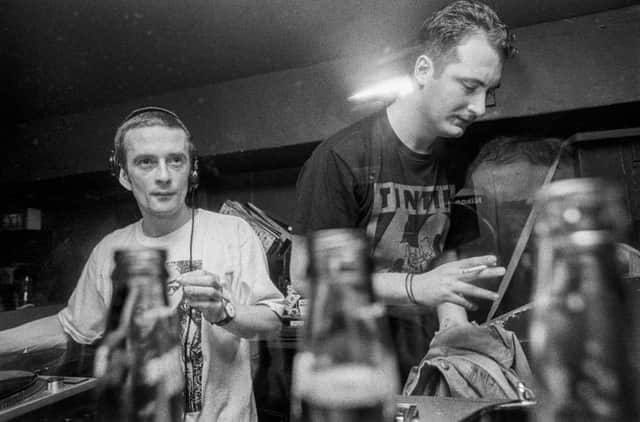Nightclubbing 1990s: The record shops that fuelled a brave new dancefloor


Kiltie ran 23rd Precinct in Bath Street, Glasgow, which sat close to the flame of the dance music explosion in the 1990s.
When he took over the shop in 1989, the store had a large stock of classical, country and rock, but the shelves were soon heaving with house and techno records as demand soared.
Advertisement
Hide AdAdvertisement
Hide AdHe said: "When we moved into the shop, the scene had really kicked off and the dance explosion took over.
"The weekends were certainly busy. We had a proper sound system in the shop, people were coming in from venues looking for tracks they had heard. The guys behind the counter would put a tune on all the hands would go up – it was like the stockmarket.”
Big numbers of vinyl releases were being pushed at 23rd Precinct, with other shops including Rub a Dub in Glasgow and Underground Solu’shn in Edinburgh. Aberdeen One Up and Fopp also did brisk trade, among others.
The most wanted tracks appeared on the Cool Cuts list, originally published by Music Week, where clubs, DJs and labels put forward the tunes of desire.
Van-loads of vinyl would appear at 23rd Precinct from down south with their buyers seeking out releases from the US and around the world.
Staff at 23rd Precinct were usually DJs themselves and got to know what their customers wanted, putting by tracks for them until they appeared at the weekend. Going to collect their bag was a weekly pilgrimage for many.
Mr Kiltie, founder of Limbo Records, said: "You got to know people, got to know what they wanted. Customers got proper excited about their records and people were travelling from all over the country. It was the place to go.”
The shop ran for 11 years with the rise of digital downloads ultimately bringing the business to a close, along with soaring city centre costs.
Mr Kiltie added: "People would come in , want to listen to a track on vinyl, and then go away and listen to it for free.”
Comments
Want to join the conversation? Please or to comment on this article.
